Q&A with Planet Farms Founders Travaglini and Benatoff
Focus On Flavor, Sustainability & Automation
Last month, Italy’s Planet Farms officially opened its new farm in Cavenago, just outside Milan. Described as the largest and most advanced vertical farm in Europe, the operation is the brainchild of Co-Founders and Co-CEOs Luca Travaglini and Daniele Benatoff.
Friends since childhood, Travaglini and Benatoff’s company emerged from the duo’s shared passion to break through traditional agriculture, and is grounded in their Italian roots and focused on food quality and flavor. Indoor Ag-Con had the chance to learn more about their vision, goals and plans for the future in this month’s CEO Q&A.
Congratulations on the recent opening of your new farm in Cavenago. What makes your new facility different and unique from others?
Our union of world-class technology and the best of Italian agricultural tradition offers a concrete, scalable answer to the need for agronomic products that are healthy, high quality, low environmental impact, available all year round, and affordable for everyone. With its fully integrated supply chain, a seed comes in and a finished product goes out. We offer a virtuous system of food production that ensures food safety and protects against sudden climatic shocks that could compromise regular food supply and product quality.
Where some farms focus on the highest yield at the lowest cost, Planet Farms puts emphasis on flavor first. Can you share more around that philosophy and how you’re working with chefs to help promote your product?
We are proud of our partnership with the Cerea brothers, owners of the 3 Michelin® Star restaurant Da Vittorio, in Brusaporto, near Bergamo. The collaboration started in 2020 during the pandemic, when we donated our products to the Bergamo hospital’s canteen which was managed by the Cerea brothers. They got to try our produce then and were so impressed by its authentic and fresh flavor that the idea of a partnership took form. That road led us to the construction of a Vertical Farm in Brusaporto to supply fresh products directly to the starred restaurant. We became two partners united by a common vision: bringing unique flavor and quality in everything we do. These are just some of the ingredients of this unique gastronomic experience that has developed into a true friendship between our organizations.
Sustainability is a key part of your mission – can you share some of Planet Farms sustainable practices and initiatives ?
Sustainability is the point of departure and the very essence of Planet Farms across every dimension: environmental, social, and economic. We designed our supply chain system to be life-giving and cyclical, to maximize the abundance of harvests while minimizing energy consumption and waste of any kind. In Planet Farms’ facilities, the water and minerals not absorbed by crops are reintegrated and recirculated into the system reducing water consumption by over 95% compared to traditional farming and production processes. Multi-level farming saves more than 90% of the soil promoting biodiversity, local ecosystems and topsoil restoration. Beyond cultivating produce that respects the environment and human health, Planet Farms is among the first in ready-to-eat salads to use FSC® paper packaging, certified by the Forest Stewardship Council for sustainably sourced, recyclable materials.
In 2019, together with our partners Signify, 255 and Sirti, we took part in the LIFE Program, the European Union’s key tool to support sustainable businesses protecting nature and the environment.
We presented our innovative production system and explained how it allows us to save an enormous amount of water. This and many other cutting edge aspects of our company led to our selection among many other major projects. This award meant that we received funding to achieve our ambitious sustainability goals through our Vertical Farm in Cavenago near Milan.

Tell us about what you are growing currently and if you have plans to add new crops or varieties.
Our crops grow naturally, thanks to light, water, air and minerals, but without exposure to stress caused by bad weather, excessive heat, parasites, pathogenic micro-organisms or competition with weeds. We currently have four different products; a baby blond lettuce called Lattugood and three different mixes called: Oriental Yummix, Spicy Yummix and Delicate Yummix. Our range is constantly expanding so stay tuned for more exciting launches!
Can you tell us a little about your AI system, Gaia VF
“Gaia VF” is a system for monitoring vegetable growth that generates a constant data flow for analysis, permitting the development of an increasingly ideal environment around the crops and improving production with each cycle. It is at the core of everything we do and analyses and optimizes every step in our automated process.
What’s next for Planet Farms?-
There are a lot of activities in the pipeline. With the huge amount of requests for our products we have to expand across Italy, so in the coming year we will build a facility twice the size of Cavenago. That same design will be used for the expansion across Europe in 2022. Next to that we are already trialing new crops to be added to the portfolio in the near future; these range from new mixes and specialty leaves to fruiting crops. We are expanding our research facilities as well, so we will also make our way into the B2B segment, growing crops for ingredients, compounds and raw material optimization.
This is just the start for us, we want the world to experience the differentiation our product range brings to the table!
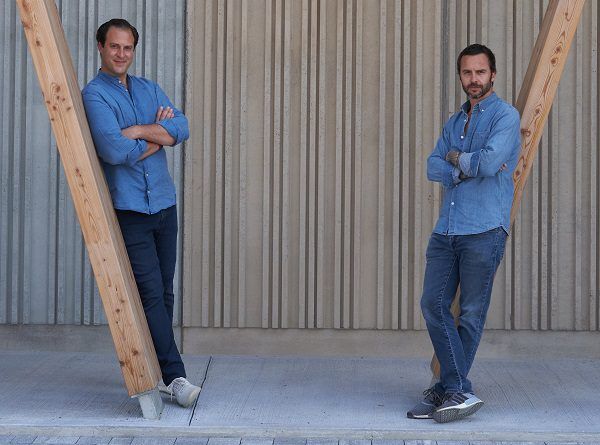
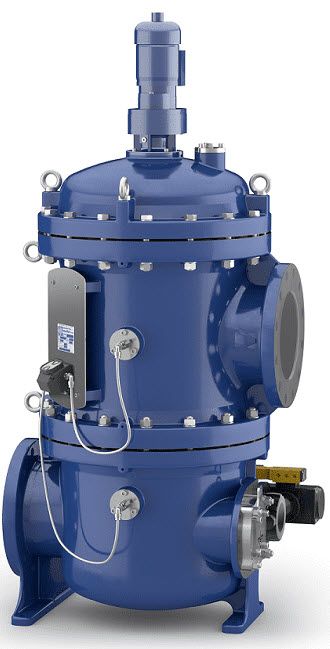

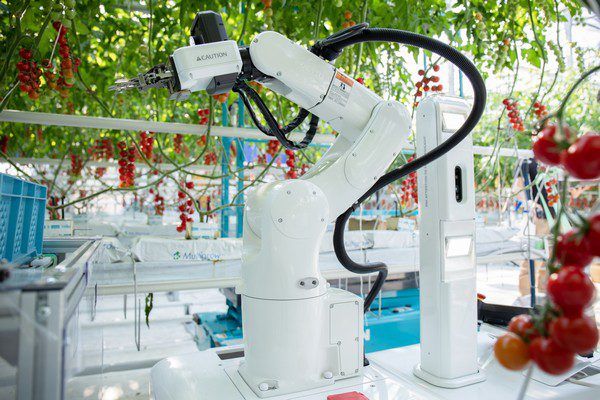
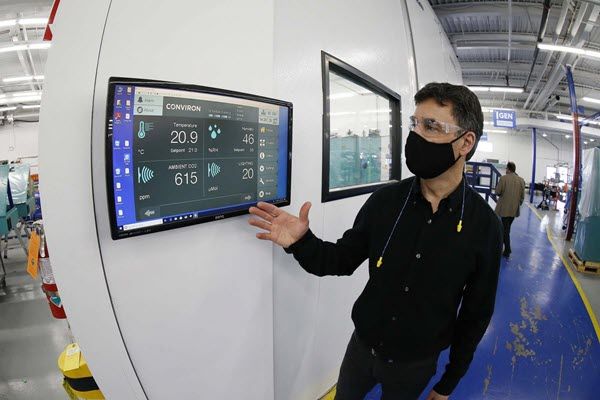
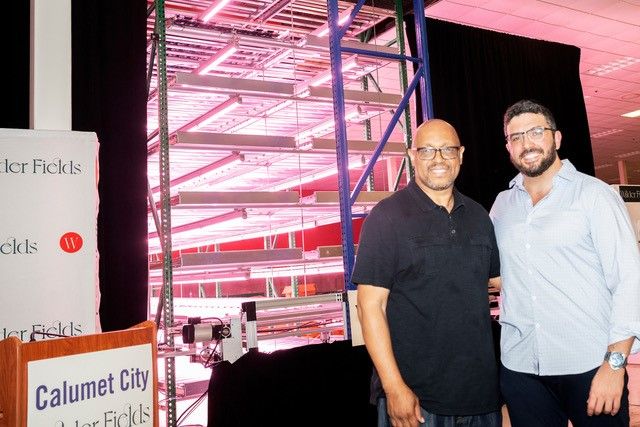


 By taking in large quantities of data from a variety of environmental, system and plant sensors, AI techniques can be applied to optimize performance of the vertical farming system and assist growers in their role as farm operator. While traditional sensor readings like temperature, humidity and flow rate are vital, plant imagery is a requirement to unlock AI’s power in vertical farming. Without high-frequency, high-resolution, hyper-spectral imagery of all plants in vertical farm production, the vertical farming industry will never reach its full potential. OnePointOne has focused heavily on collecting, analyzing and providing that imagery data to our growers.
By taking in large quantities of data from a variety of environmental, system and plant sensors, AI techniques can be applied to optimize performance of the vertical farming system and assist growers in their role as farm operator. While traditional sensor readings like temperature, humidity and flow rate are vital, plant imagery is a requirement to unlock AI’s power in vertical farming. Without high-frequency, high-resolution, hyper-spectral imagery of all plants in vertical farm production, the vertical farming industry will never reach its full potential. OnePointOne has focused heavily on collecting, analyzing and providing that imagery data to our growers. The highest-impact application of AI in vertical farming is through the analysis of environmental, system and plant-imagery data-points and their corresponding impact on plant yield and quality.
The highest-impact application of AI in vertical farming is through the analysis of environmental, system and plant-imagery data-points and their corresponding impact on plant yield and quality. For ten thousand years farming was local and provided a diverse range of nutrients for the community. Today, we have no idea where our food is coming from and we are losing the nourishment battle. Willo exists to reconnect us to the farm and ensure that we are nourished by the highest quality foods imaginable.
For ten thousand years farming was local and provided a diverse range of nutrients for the community. Today, we have no idea where our food is coming from and we are losing the nourishment battle. Willo exists to reconnect us to the farm and ensure that we are nourished by the highest quality foods imaginable.